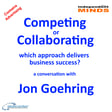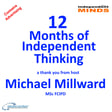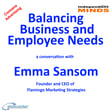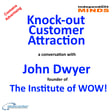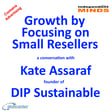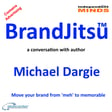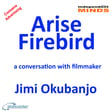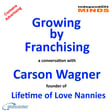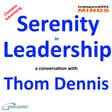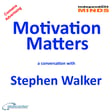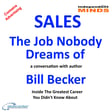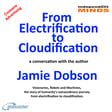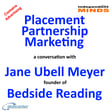
The Mind Canvas – a conversation with author Juan Campoo
In this episode of the Independent Minds host Michael Millward is captivated as Juan Campoo explains inner acceleration model and his book The Mind Canvas.
The most important possession of any human being, says Juan is their mind, yet very few understand how it works and how to manage its different moods.
Juan explains to Michael how by learning how to ask the right questions anyone can manage their mind and improve their performance at work and at home, as well as enhancing their mental health.
The Independent Minds is made on Zencastr.
Zencastr is the all-in-one podcasting platform, on which you can create your podcast in one place and then distribute it to the major platforms like Spotify, Apple, and Google. It really does make creating content so easy.
If you would like to try podcasting using Zencastr visit zencastr.com/pricing and use our offer code ABECEDER.
Find out more about both Michael Millward and John Couper at Abeceder.co.uk
Travel
Juan is originally from Argentina, but now lives in the Netherlands.
If you would like to visit either Argentina, or the Netherlands the best place to make your travel arrangements is The Ultimate Travel Club, which is where you can access trade prices for flights, hotels and holidays. Use my offer code ABEC79 to receive a discount on your membership fee.
Matchmaker.fm
Thank you to the team at Matchmaker.fm the introduction to John.
If you are a podcaster looking for interesting guests or if like John, you have something very interesting to say Matchmaker.fm is where matches of great hosts and great guests are made. Use our offer code MILW10 for a discount on membership.
Three the network
If you are listening to The Independent Minds on your smart phone, you may like to know that Three has the UK’s Fastest 5G Network with Unlimited Data, so listening on Three means you can wave goodbye to buffering.
Visit Three for information about business and personal telecom solutions from Three, and the special offers available when you quote my referral code WPFNUQHU.
Being a Guest
If you would like to be a guest on Fit For My Age, please contact using the link at Abeceder.co.uk.
We recommend that potential guests take one of the podcasting guest training programmes available from Work Place Learning Centre.
We appreciate every like, download, and subscriber.
Thank you for listening.
